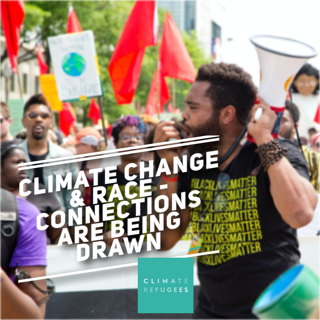In the wake of the current global uprising on racism, connections are being drawn between climate change and race. As is well-understood by some working in this space, climate change is an everyday reality for many developing countries, marginalized and disenfranchised people, many of whom are people of color. However, that link between climate change and race is now amplified to emphasize how little that is part of the story.
For example, this writer points out that Australia’s wildfires that began last June and continued well into March this year, while generating tons of global outrage, contained very little media coverage of its impacts on Indigenous Australians, some of whom lost their homes and all possessions in the fires, which also put their cultural and sacred sites at risk.
The fact that the US, UK and Australia dump their waste on developing countries like Thailand, the Philippines and Malaysia, paying scant attention to the hazards they create in the process for the populations that live there.
Similarly, she rightly calls out extractive industries killing of Indigenous leaders in the Amazon under Brazil’s Bolsonaro Administration. While the US and Canada authorize more extractive industries to build oil pipelines, such as Dakota and Keystone XL, through indigenous lands, while posing threats to the health and food sovereignty of Indigenous communities.
She highlights the EPA report in March, which revealed Black communities in the US are three times more likely to die from exposure to pollution than white communities, something supported again this week, by another writer who makes the link between the EPA report and the heightened pregnancy risks for Black women, which makes climate change especially worrisome then for women of color.
As both writers correctly posit, there are elements of race that cannot continue to be overlooked in the climate change discussion. Chief among them that the continued reliance on fossil fuels not only accelerates climate change and worsens air quality, but we now also know, adversely and disproportionately impacts communities of color. (Vogue & Reuters)

